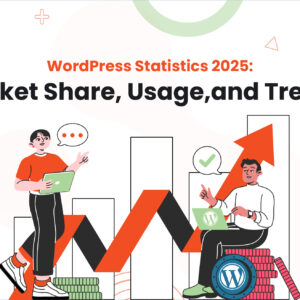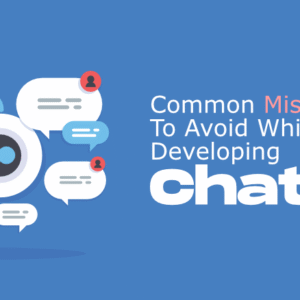Running a software company involves more than just writing code and serving clients. One of the most important areas that can define long-term success is how well the company manages its people. That’s why a human resource management system (HRMS) is a must-have tool for growing tech firms. For any software company in Delhi, adopting a strong HRMS is one of the smartest moves to improve employee productivity, reduce errors, and keep processes organized.
This article covers how HRMS helps software companies manage their workforce and how it fits into the broader goal of building a smart, scalable, and future-ready company.
The Need for HRMS in Software Companies
Delhi is home to hundreds of IT and software firms—ranging from small startups to well-established players. While their tech offerings may differ, they all share a common need: to manage a skilled and growing workforce with minimal disruption.
As companies scale, managing employee records, attendance, payroll, recruitment, and compliance manually can become overwhelming. Without a structured process, errors start to affect team performance and employee satisfaction.
This is where HRMS proves useful. It replaces spreadsheets and paper files with digital, trackable, and automated systems.
Key Functions of a Human Resource Management System
A well-designed HRMS can take care of many HR functions in one place. Some of the common features include:
- Employee records management
- Attendance and leave tracking
- Payroll calculation and processing
- Performance appraisal tracking
- Recruitment and onboarding workflows
- Training and development monitoring
- Compliance reporting
With these features, HR teams can reduce their workload and avoid errors. Employees, too, benefit from more transparency and quicker access to their own data.
Benefits of HRMS for Software Companies in Delhi
Software firms often have multiple projects, deadlines, and team structures. HRMS supports such operations by simplifying people-related processes.
1. Centralized Employee Data
Instead of having employee details spread across emails, folders, and spreadsheets, HRMS stores all data in one place. This includes personal information, project assignments, salary history, performance notes, and more.
This makes it easy for HR or team leads to find what they need without delay.
2. Real-Time Attendance and Leave Tracking
HRMS can integrate with biometric devices or mobile check-ins. This ensures attendance is logged in real time, and leave requests are processed faster. Managers can approve leaves online, and employees can check their leave balance easily.
3. Easy Payroll Management
Salary calculations, tax deductions, PF, ESI, and payslip generation become smooth with HRMS. All necessary calculations are done automatically based on the attendance and leave records.
This reduces errors and ensures that employees are paid accurately and on time.
4. Better Recruitment Workflow
Many HRMS platforms allow HR teams to post jobs, collect resumes, shortlist candidates, schedule interviews, and send offer letters—all from one system. This saves time and keeps hiring organized.
For fast-growing software companies, this feature supports quick and smooth onboarding.
5. Performance Review Management
Appraisals can be conducted within the HRMS using self-assessments, peer reviews, and manager evaluations. Goals and KPIs can be tracked regularly.
This brings clarity to performance discussions and creates a data-backed approach to promotions and training needs.
Reducing HR Errors and Delays
Manual HR work often leads to delays or inconsistencies. An employee may not get their leave updated, or a tax deduction might be miscalculated. These issues can lead to frustration and reduce trust in the HR process.
HRMS helps eliminate these problems by standardizing processes and reducing manual inputs.
Compliance Made Easy
Staying compliant with labor laws and tax rules is important for every business. HRMS keeps track of all statutory requirements, generates reports, and helps file necessary returns.
Whether it’s TDS, EPF, or gratuity, the system handles all components as per current legal standards.
Mobile and Remote Access
Software firms often have flexible or hybrid work policies. A cloud-based HRMS allows employees to access the system from any device. They can mark attendance, request leave, view payslips, or update their profiles from anywhere.
This adds to employee satisfaction and supports a work-from-anywhere model.
Integration with Other Systems
Modern HRMS can be integrated with project management tools, accounting software, or employee communication platforms. This gives the management a complete view of project status, team capacity, and cost tracking in one place.
This integration supports better business decisions and improves inter-department coordination.
Case Example: Small Software Firm in Delhi
A 50-member app development company in Delhi was managing HR manually. They often faced delays in onboarding, had payroll mistakes, and lacked structured appraisals.
After adopting an HRMS, the company:
- Reduced payroll errors by 90%
- Onboarded new hires 2x faster
- Improved employee satisfaction with better leave transparency
Their HR team also gained more time to focus on talent development instead of administrative tasks.
How to Choose the Right HRMS
When selecting a system, software companies should consider:
- Ease of use for HR staff and employees
- Scalability as the team grows
- Customizable workflows
- Support for compliance tracking
- Data security and access control
- Mobile access
Many vendors offer trial versions. It’s a good idea to test features and ensure they match the company’s workflow.
About DI Infotech Leaders Pvt. Ltd.
DI Infotech Leaders Pvt. Ltd. was incorporated in 2005 with a focus on delivering high-quality software services across India. With a sharp understanding of business needs, we develop custom HRMS solutions that support growing companies.
Our development strategies and reliable service have helped us grow beyond India to serve clients in the USA, UK, and Australia. Our HRMS tools are tailored for software companies and built to handle real-world team structures, flexible work cultures, and compliance requirements.
Whether your company needs a basic employee tracking system or a complete HR automation solution, we can build a tool that fits.
In a competitive tech market, talent is a software company’s biggest strength. Managing that talent well is not just a support task—it’s a growth strategy.
For every software company in Delhi, a proper human resource management system helps reduce delays, avoid errors, and improve employee experience. It supports HR teams, gives managers better visibility, and makes life easier for employees.
If your company is still using manual HR processes or juggling multiple spreadsheets, it might be time to switch to something smarter. DI Infotech Leaders Pvt. Ltd. can help you with a reliable, easy-to-use HRMS tailored to your business.
Contact us today to discuss how we can support your team’s success.









